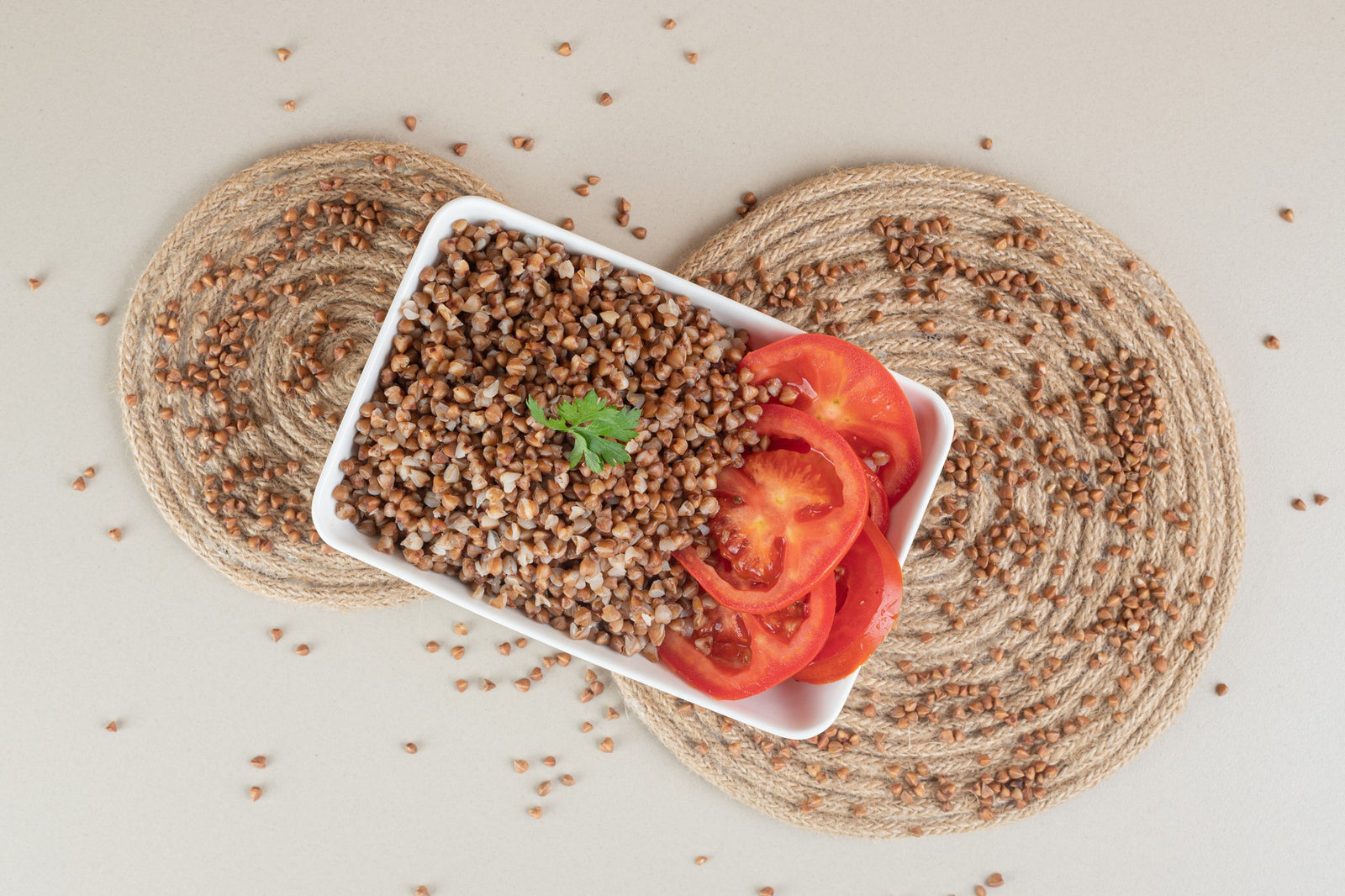
November 20, 2023 3 min read
In recent years, the world has seen a surge in interest in alternative grains that offer impressive health benefits. One such grain that has gained popularity is buckwheat. Despite its name, buckwheat is not related to wheat and is actually a gluten-free grain-like seed packed with essential nutrients. This article explores the incredible benefits of buckwheat and why it deserves a place in your healthy diet.

If you’re looking to manage your weight, buckwheat can be a valuable addition to your diet. The high protein content in buckwheat induces a feeling of satiety, reducing overeating and supporting weight management efforts. Furthermore, the fiber content in buckwheat helps regulate appetite and promotes healthy digestion, making it an ideal grain for those aiming to shed those extra pounds.

Buckwheat is incredibly versatile and can be enjoyed in various forms. It is available as groats, flour, noodles (soba), and even as a gluten-free option in baking. Its nutty flavor and unique texture make it an exciting addition to both savory and sweet dishes. Some popular recipe ideas include buckwheat pancakes with fresh berries and Greek yogurt, soba noodle salad with crispy vegetables and a sesame dressing, and buckwheat porridge with cinnamon, almond milk, and a drizzle of honey.
With its exceptional nutrient profile and numerous health benefits, buckwheat is undoubtedly a grain worth incorporating into your diet. Whether you're looking to improve heart health, regulate blood sugar levels, promote digestive wellness, or manage weight, buckwheat offers a remarkable range of advantages. So, why not explore the culinary possibilities of buckwheat and experience the extraordinary benefits this nutrient-packed grain has to offer? From nourishing your body to tantalizing your taste buds, buckwheat is a grain with incredible potential for overall health and well-being.
❤ Try our USDA certified Buckwheat ❤
Related Blogs:
Comments will be approved before showing up.

January 27, 2025 3 min read
Flaxseed, the tiny yet powerful superfood, is packed with nutrients that can support weight loss. From curbing hunger to stabilizing blood sugar, this guide dives into the science of how flaxseed can help you shed those extra pounds.

December 11, 2024 3 min read
Discover three quick and easy soup recipes featuring organic small red beans. From a classic vegetable soup to a creamy potato blend, these wholesome recipes are perfect for chilly days and busy weeknights. Packed with flavor and nutrition, these soups will warm your heart and soul this winter!

December 06, 2024 3 min read
This vibrant and nutritious Green Lentil Salad combines tender lentils with grilled chicken, fresh vegetables, and a zesty lemon dressing. Packed with protein, fiber, and essential vitamins, it’s the perfect healthy meal for any time of day.
© 2026 Be Still Farms- Real, Fine Organics.
Privacy | Terms | Refund Policy | Organic Certification
